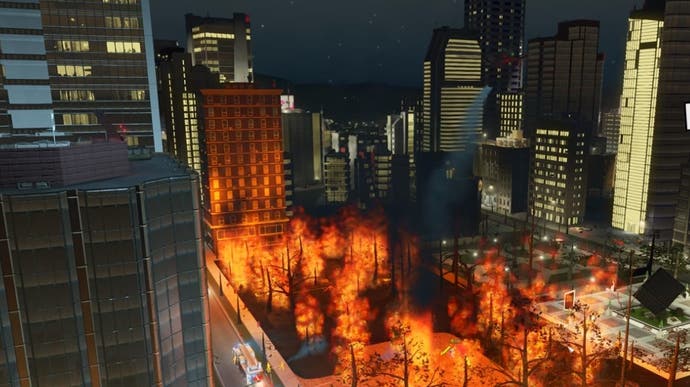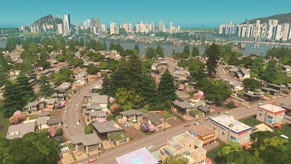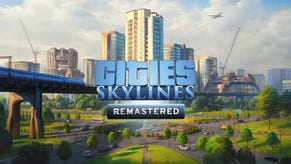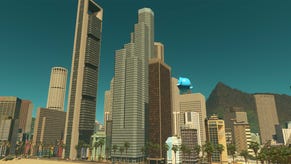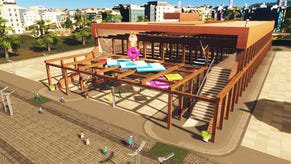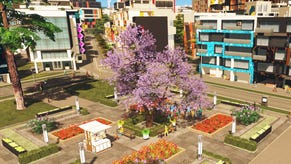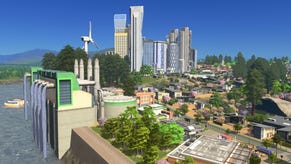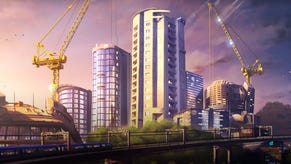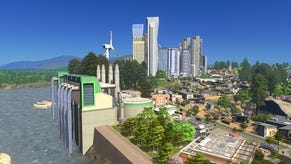Cities: Skylines for Switch has some disappointing performance issues
Shaky foundations.
Oh Cities: Skylines, why do you build me up just to let me down?
As part of the latest Nintendo Direct, Cities: Skylines - the highly successful city-building game by Colossal Order, has officially been announced as a port for Nintendo Switch. Paradox informed me it will retail for around $39.99 (£35.62), and according to the Direct, it's due to release today. The Switch version will come with two expansion packs, Snowfall and After Dark, along with Pro Controller support and even HD rumble (to let you know where to place buildings).
But how does it play? At this year's Gamescom, I went hands-on with Skylines, and on the whole, publisher Paradox has done a fair job with the port. Obviously, the main thing to change is the UI, which has been designed to make city-building easy on Switch. The controls are intuitive and logical. You can open mini wheel menus, for instance, to choose different brush sizes for creating zones - pretty helpful for navigating some of the game's more complicated menus. On top of this, there's also a very detailed settings menu, so players can tweak the controls to their heart's content.
For players who like to admire their handiwork, the game's screenshot mode is another pleasant addition. The camera angle lets you dip as low as the PC version, so you can get a nice sunset shot of whatever hellscape you may have created.
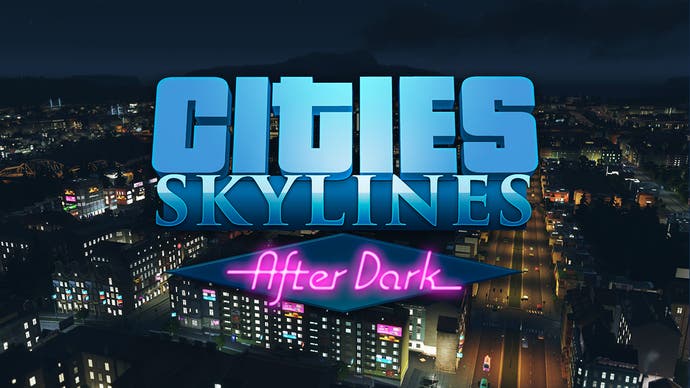
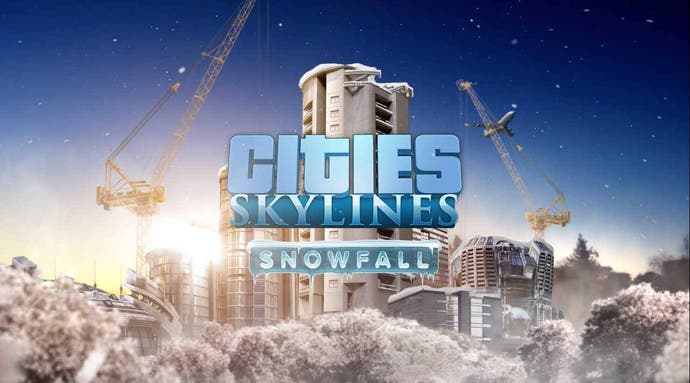
What lets the port down, regrettably, are its performance issues. When I asked Paradox about Skylines' framerate, I was told it typically averages a healthy 30. But the company admitted that in late game - when urban sprawl really kicks in - it drops to an average of 20. Paradox said it designed the game's movement in a way which minimises "the impact on gameplay aspects" so that "you don't notice it". Personally, however, I found I very much noticed. The slowness of the simulation is pronounced in dense areas, particularly when zooming in on a crowded high street. Not ideal when you're trying to stalk an NPC as they go about their daily life.
The FPS issue becomes even more of a problem when the Switch is docked. Again, on a smaller city, it was perfectly fine - but when a bustling metropolis was loaded, the FPS took a hit. Things got incredibly choppy when I zoomed in.
The game was still playable from a distance - but it absolutely impacted my enjoyment of the game. Half the thrill of a city sim, for me, comes from admiring the details of the miniature towns I create. The fire crew hurriedly responding to an inferno. The schoolkids waiting to catch one of those quintessentially American yellow buses. Even someone grabbing a coffee from a knock-off Dunkin' Donuts. It's the reason why mods have been so popular for the game - people enjoy these quirks, and without them, it becomes a flavourless road map planner. In purely mechanical terms, it works - but you really lose all the colour.
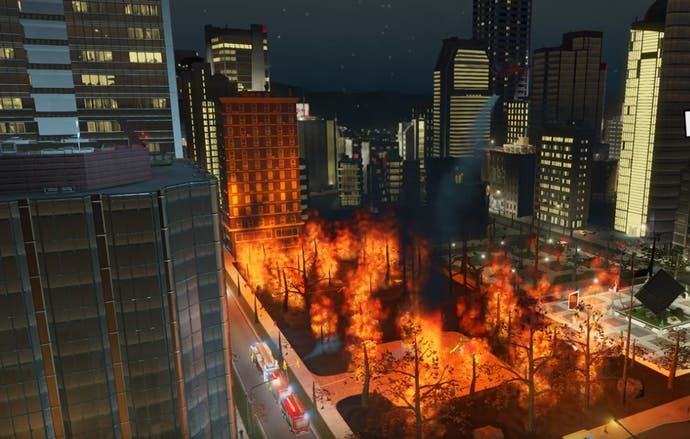
In the hands-on session, I asked Paradox if there are any plans to further optimise Cities: Skylines for Switch. The answer is yes: particularly as the patches are free, which means Paradox can "continue optimising". The low FPS in docked mode is apparently due to Paradox wanting to "put most of the focus on the portable part, as that's the selling point for [Switch] customers". For me, however, the Switch is as much about versatility as mobility - and the docked aspect of Switch is an aspect of the console which still deserves attention.
It really is a shame about the performance issues, as the rest of the port works well. There also appear to be some ambitious plans in store, too: if the Switch release is successful, Paradox will consider adding more expansions. But the foundations could do with a little strengthening first.
